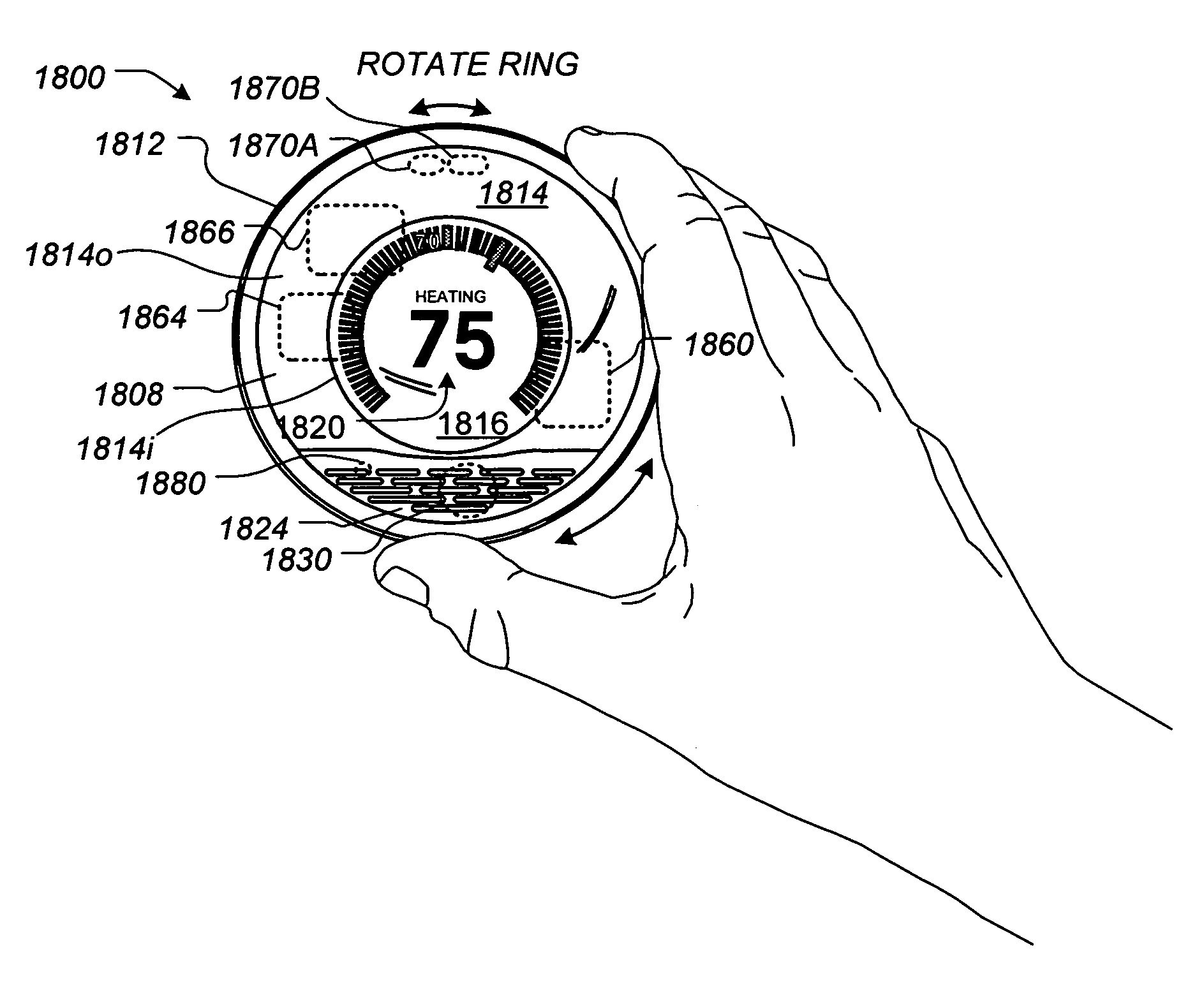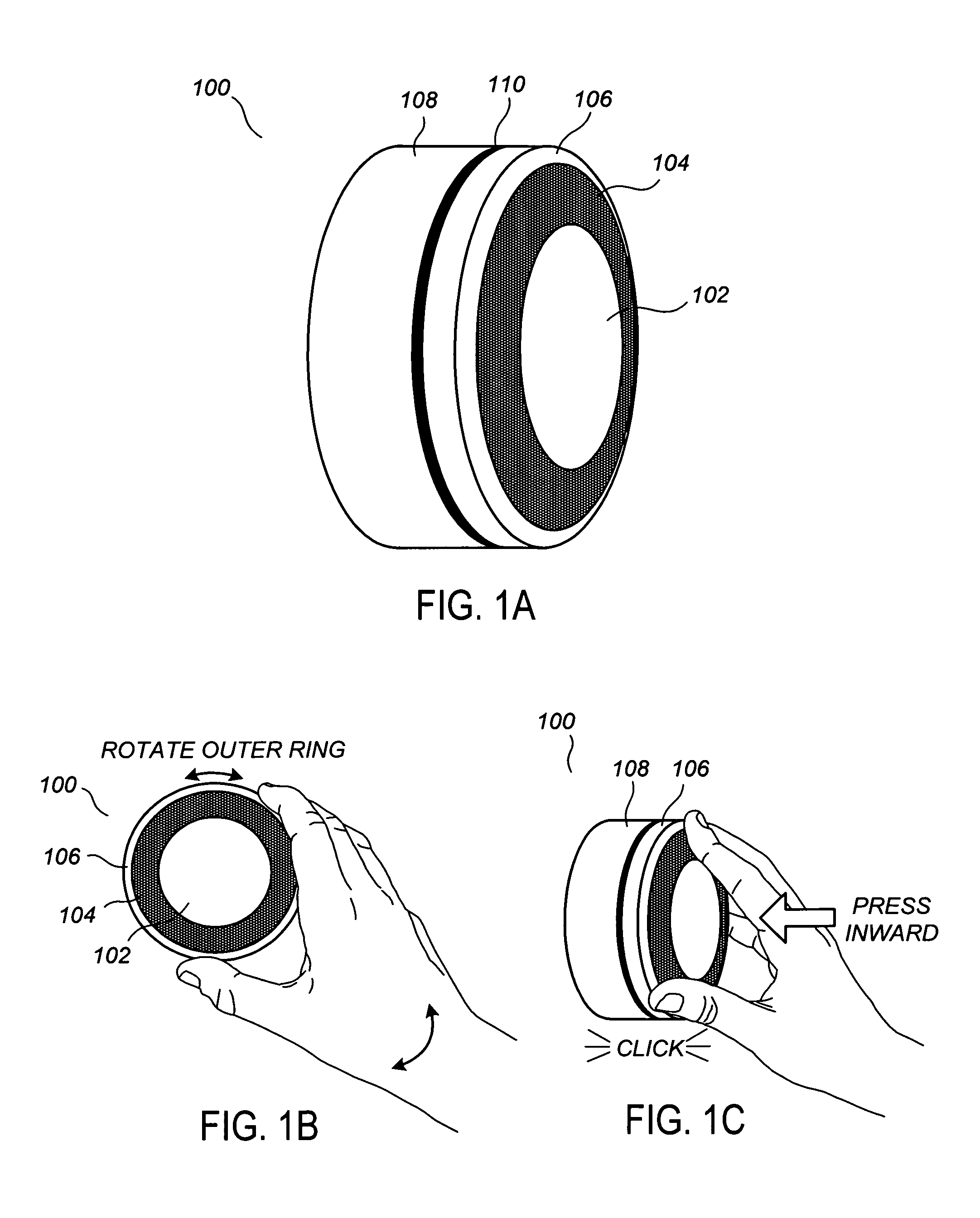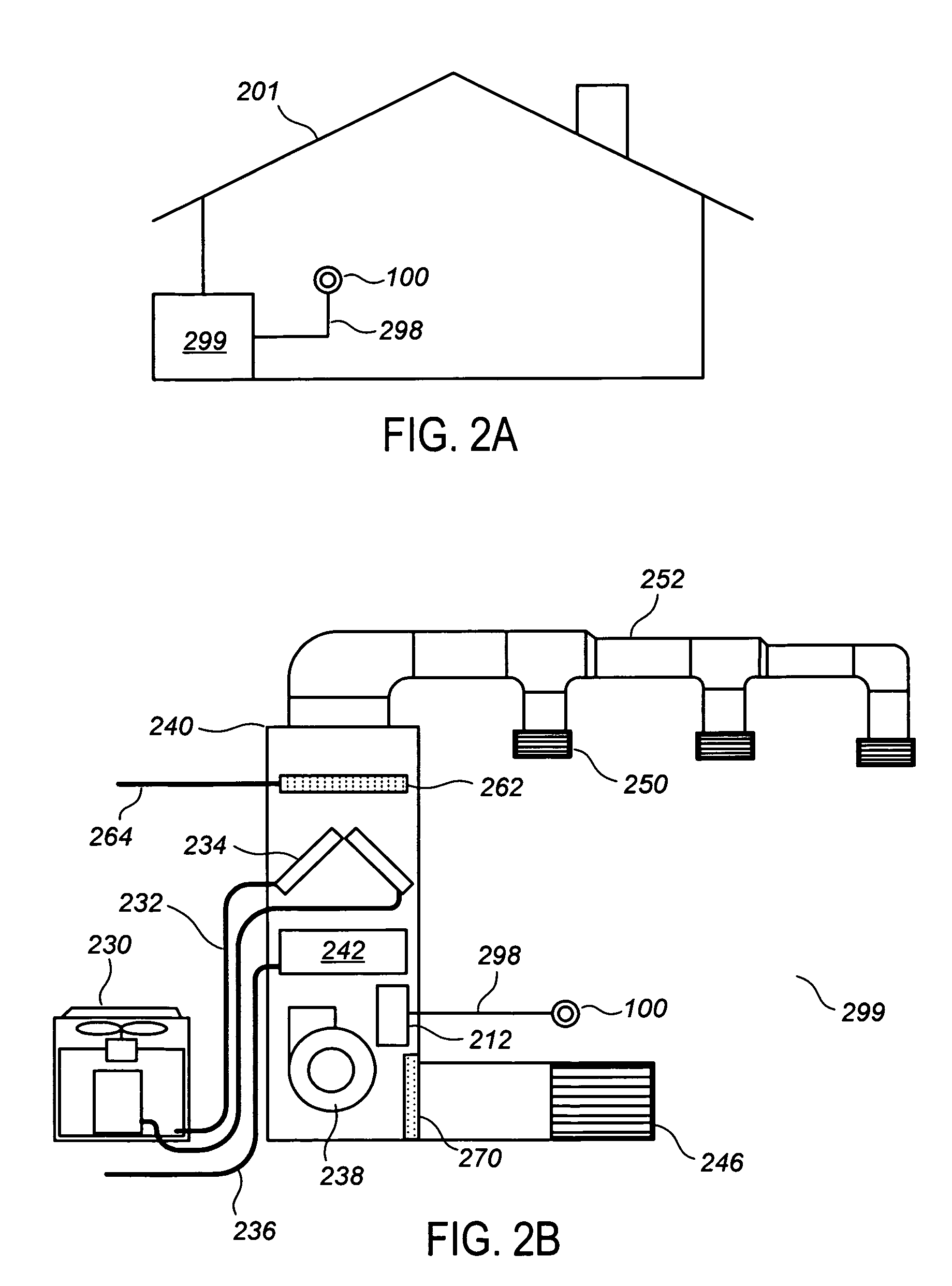Flexible functionality partitioning within intelligent-thermostat-controlled HVAC systems
a technology of intelligent thermostats and functional partitions, applied in the direction of program control, instruments, heating types, etc., can solve the problems of intimidation of users, missed substantial energy-saving opportunities for all, etc., and achieve the effects of increasing efficiency, reducing energy consumption, and increasing efficiency
- Summary
- Abstract
- Description
- Claims
- Application Information
AI Technical Summary
Benefits of technology
Problems solved by technology
Method used
Image
Examples
Embodiment Construction
[0050]The subject matter of this patent specification relates to the subject matter of the following commonly assigned applications, each of which is incorporated by reference herein: U.S. Ser. No. 12 / 881,430 filed Sep. 14, 2010; U.S. Ser. No. 12 / 881,463 filed Sep. 14, 2010; U.S. Prov. Ser. No. 61 / 415,771 filed Nov. 19, 2010; U.S. Prov. Ser. No. 61 / 429,093 filed Dec. 31, 2010; U.S. Ser. No. 12 / 984,602 filed Jan. 4, 2011; U.S. Ser. No. 12 / 987,257 filed Jan. 10, 2011; U.S. Ser. No. 13 / 033,573 filed Feb. 23, 2011; U.S. Ser. No. 29 / 386,021, filed Feb. 23, 2011; U.S. Ser. No. 13 / 034,666 filed Feb. 24, 2011; U.S. Ser. No. 13 / 034,674 filed Feb. 24, 2011; U.S. Ser. No. 13 / 034,678 filed Feb. 24, 2011; U.S. Ser. No. 13 / 038,191 filed Mar. 1, 2011; U.S. Ser. No. 13 / 038,206 filed Mar. 1, 2011; U.S. Ser. No. 29 / 399,609 filed Aug. 16, 2011; U.S. Ser. No. 29 / 399,614 filed Aug. 16, 2011; U.S. Ser. No. 29 / 399,617 filed Aug. 16, 2011; U.S. Ser. No. 29 / 399,618 filed Aug. 16, 2011; U.S. Ser. No. 29 / 399,...
PUM
 Login to View More
Login to View More Abstract
Description
Claims
Application Information
 Login to View More
Login to View More - R&D
- Intellectual Property
- Life Sciences
- Materials
- Tech Scout
- Unparalleled Data Quality
- Higher Quality Content
- 60% Fewer Hallucinations
Browse by: Latest US Patents, China's latest patents, Technical Efficacy Thesaurus, Application Domain, Technology Topic, Popular Technical Reports.
© 2025 PatSnap. All rights reserved.Legal|Privacy policy|Modern Slavery Act Transparency Statement|Sitemap|About US| Contact US: help@patsnap.com



